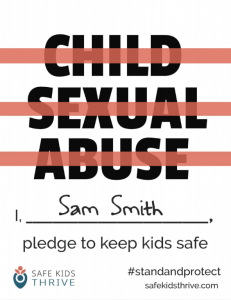Viewing Sexual Violence Prevention from a…
Viewing Sexual Violence Prevention from a Culturally Informed Perspective In this free…
Home / Read the Report
As a prevention strategy, the implementation of policies and practices that promote greater child safety in YSOs throughout the Commonwealth is both critical and achievable, and will rely on a multi-pronged approach over the next 5 years.
The Legislative charge to the Task Force calls for “…the development of a 5-year plan for using community education and other strategies to increase public awareness about child sexual abuse, including how to recognize signs, minimize risk and act on suspicions or disclosures of such abuse.” Since the focus of this report is on primary prevention (i.e., creating organizational and community interventions that can prevent abuse before it happens) and on building the capacity in YSOs throughout the state to not only prevent, but also to recognize, respond to, and report instances of child sexual abuse, it presents a logical framework within which to realize these longer-term implementation-oriented goals.
YSOs in their various forms exist in every community in the Commonwealth and serve their community’s children, youth and families. Therefore, the Task Force’s focus on developing guidelines and tools for the development of sexual abuse prevention and intervention plans; policies and procedures for the implementation and oversight of those guidelines; and strategies to incentivize organizations in doing so, fits in well with this approach. Better-informed YSOs can help to create better-prepared and safer communities.
Public awareness activities have always been an important part of an overall approach to addressing child abuse and neglect issues because such activities have the potential to reach diverse community audiences: parents, prospective parents, children, mandated reporters, YSOs and the community at large. In designing prevention education and public information activities, national, state, and local organizations have used a variety of media and methods to promote these activities. These include public service announcements on radio and television; Internet-based videos and educational programming; press releases; public events and meetings focused on various aspects of awareness and prevention; information kits and brochures, and posters.
The Task Force will use these and other tools to develop an implementation strategy designed to reach the multiple community audiences concerned with services to children and the prevention of their maltreatment. The accumulated evidence shows that neighborhood-based, child/youth-centered, family-focused child/youth protection and intervention strategies supported by strong YSO engagement and interagency collaboration work.
However, the challenge presented by the fact that YSOs range from small, single owner storefront businesses that function in a single community, to statewide, multi-site and multi-function organizations requires additional consideration. The following is a list of some, but not all, of the YSOs operating in Massachusetts and serving the state’s 1.4 million minor children and youth:
Although children and youth can be at risk in any one of these organizations or programs, their diversity precludes the possibility that a single prevention or intervention strategy will apply to all their safety and prevention needs. The Task Force has tried to account for this by presenting a comprehensive set of child and youth safety standards, practices and tools in each of the primary focus areas of the Report (policies and procedures, screening and hiring, codes of conduct and monitoring, safe physical and technology environments, responding and reporting, and training and education); establishing a set of minimum required safety standards in each area; and outlining a decision making process designed to aid YSOs of various sizes in determining how to craft child abuse prevention and intervention programs that best fit their needs, function, culture and responsibilities.
But the question of how such a diverse set of Massachusetts YSOs – many, presumably, without any legal or contractual requirement to, or experience in establishing a child or youth protection program – will be able to access and implement the recommendations of this report remains a significant challenge. To meet this challenge, the Task Force proposes the following initiatives be accomplished over the next 5 years:

Join us and commit to learning how you can protect the children you serve.
Customized child sexual abuse prevention guidelines to meet the unique needs of any organization that serves children.
Learning Center Registration
Sign up for an account and start your learning experience.
Free Online Assessment
Let us help you find out where to start.
